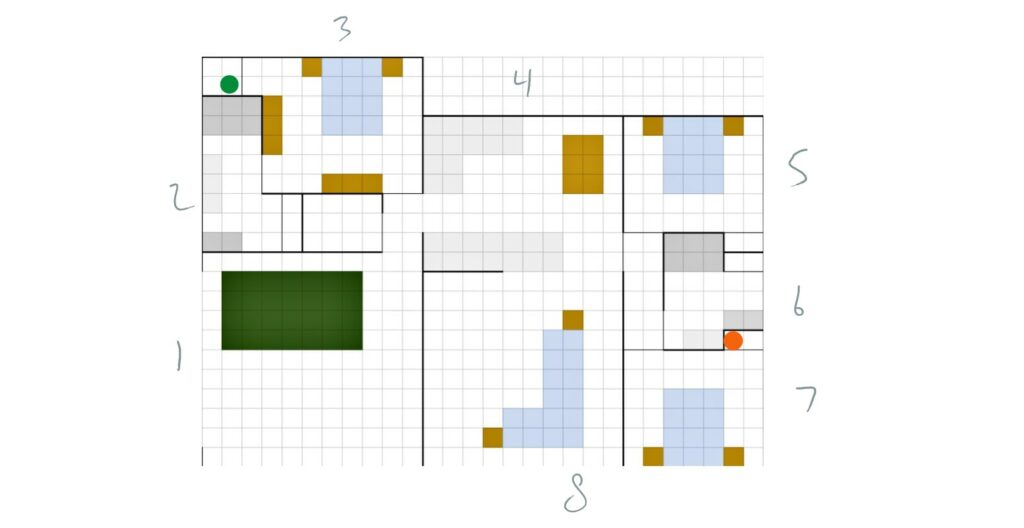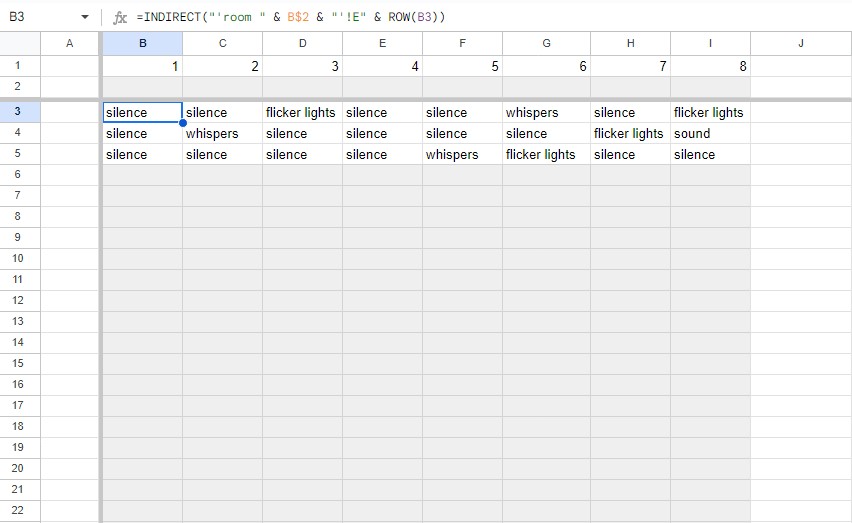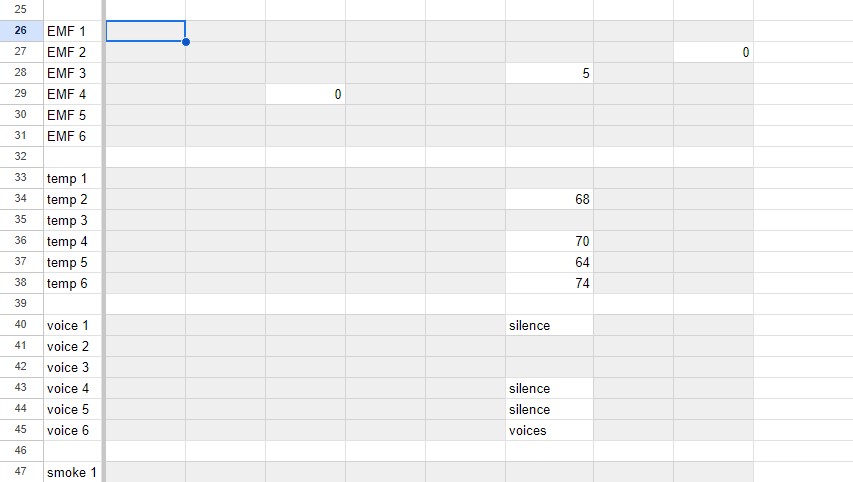Note: The initial playtests described below were done between August 12, 2023 and August 17, 2023.
The playtesting phase of a game is all about experimentation, feedback, and refinement. For AURA Inc., my starting point was simple and practical: I used a tablet and computer to test initial mechanics without diving deep into physical components.
Digital Game Board: Setting the Stage
For the game board, I made use of Microsoft OneNote on a tablet, drawing from Google Sheets to sketch out a straightforward map that acted as our players’ battleground.

Events: Defining the Haunted House’s Atmosphere
I used spreadsheets to design the house’s various events. A random number generator would pick a ghost, and that choice would set the tone for each room’s activity, adjusting the events based on the ghost’s presence.

Player Mechanics: The Basics of Interaction
Players entered the scene equipped with two out of six available evidence-checking tools. In each round, they had the option of walking, occasionally sprinting, investigating, or using tools to uncover evidence. Following their actions, the “house” phase would reveal a new set of room events from our spreadsheet.
Evidence collection used a straightforward random number generator on Google, which directed players to our evidence table.

For hunts, since the mechanics were still in the initial stages, I opted for a simplified approach. Characters would find a hiding spot, representing a short pause in the game’s flow.
Insights from the Playtests
These early digital tests were instrumental in shaping the game:
- Movement: I found a need to adjust character movement to maintain game balance.
- Evidence Tools: Implementing some restrictions on how evidence tools were used added a strategic layer.
- Room Events: I narrowed up the possible events a bit. I also made some events act differently depending on the stage of the game
- Sanity Mechanic: The sessions led me to consider adding a “sanity” factor, which could make the ghost encounters more challenging as the game went on.
Looking Forward
Starting with digital playtests helped streamline AURA Inc.’s initial development process. It provided a clear direction for creating physical components and highlighted areas that needed more attention. The core lesson? Playtest in any form, be it digital or on the table, is a step towards refining the game.
More updates on AURA Inc. are on the way as it continues to evolve. Stay tuned!